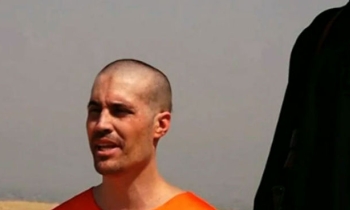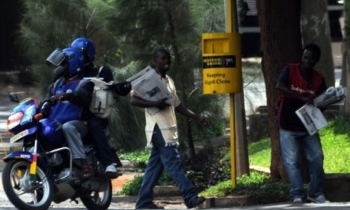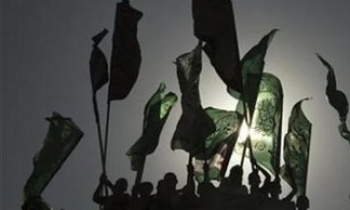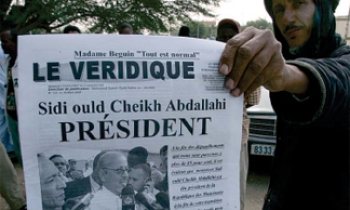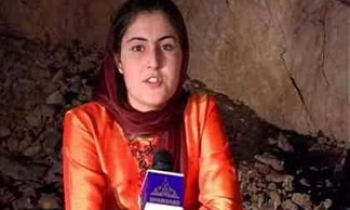Adolfo Cerrudo, a leader of the radical pro-government Popular Civic Committees, alleged to have taken part in physical assaults on journalists, has been placed under house arrest since November 14.
Cerrudo took part in physical assaults, along with 200 other committee members, against a score of journalists outside San Pedro de La Paz prison, who were there to cover the investigation into the ousted governor Leopoldo Fernández on October 29.
Cerrudo is under investigation for threatening to rape a journalist of the privately-owned daily La Razón, Cerrudo was under a legal injunction preventing him approaching members of the media as a condition of his bail.
Following a hearing at which a psychological evaluation of Cerrudo revealed his “violent and aggressive tendencies”, he was put under house arrest, except for attending court hearings. Police have moreover been posted outside his home since November 17 after he broke the ruling the day after it was handed down.
“These preventive measures are a necessary protection for the safety of all journalists and we hope they will be followed with a conviction against Adolfo Cerrudo, to send a clear signal to radical activists who have been routinely targeting members of the media with complete impunity," Paris-based Reporters sans Frontières (RSF) said.
On October 29, some 200 Popular Civic Committee members attacked a dozen journalists who were outside San Pedro prison for the arrival of members of a commission from the Union of South American Nations (Unasur) to question the detained former governor of the northwestern department of Pando, Leopoldo Fernández, about a massacre of 15 indigenous peasants on September 11, with which he has been charged.
Members of the “Red Ponchos” collective began by hitting the journalists with leather lashes, according to RSF. The attack was intensified when journalists from TV stations ATB and Red Uno set up their equipment, Reporters Without Borders was told by María Luisa Callejas of the daily La Prensa, who was herself attacked.
“If you do not leave, we will kick you out of here,” several of the assailants shouted, one of whom turned out to be Cerrudo, the committee’s leader. Callejas said: “At no point did the police step in to disperse our assailants. They just tried to keep us at a distance.” That did not suffice to protect the journalists. The protesters charged them and in the ensuing melee, Jonnatan Condori of Catholic Church-affiliated Radio Erbol and Javier Alanota of ATB were badly beaten.
There was also violence the day before outside the prison. PCC members led by Edgar Mora attacked four journalists who had come to cover their protest against the former Pando governor’s possible transfer to Sucre. Reporter Roxana Lizárraga and cameraman Juan Carlos Vera of privately-owned TV station Unitel, Nicolás Sanabria of privately-owned Radio Fides and Gustavo Arévalo of ATB were all physically attacked and accused of being “paid by Leopoldo Fernández.” Some of them were forced to suspend their live transmission.
Already implicated in several cases of violence against the media in La Paz, Cerrudo threatened to rape a woman reporter with La Razón in March. Placed under house arrest by judge Virginia Crespo, he managed to obtain a conditional release on July 23 by giving a written undertaking not to attack the media any more.
Bolivia was ranked 115th out of 173 countries in the press freedom index issued this month by RSF, 47 places lower than its ranking in last year’s index. This dramatic fall was due to the frequency of physical attacks on the media and the media’s polarisation by 10 months of political crisis.


